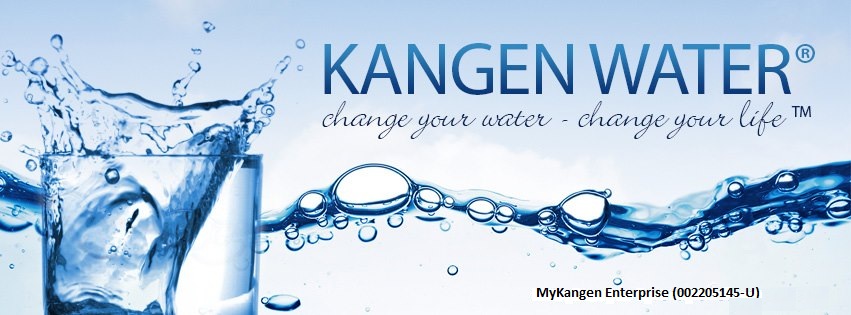Below is a summary of an article produced by WHO (World Health Organization) on whether RO (Reverse Osmosis) water is really beneficial for our health. You can also read the full article by clicking on the link below:
http://www.who.int/water_sanitation_health/dwq/nutdemineralized.pdf
Drinking water should contain minimum levels of certain essential minerals (and other components such as carbonates). Unfortunately, over the two past decades, little research attention has been given to the beneficial or protective effects of drinking water substances.
The main focus was on contaminants and their toxicological properties. Nevertheless, some studies have attempted to
define the minimum content of essential elements or TDS (Total Dissolved Solids) in drinking water, and some countries have included requirements or guidelines for selected substances in their drinking water regulations. Although these are exceptional cases, the issue is relevant not only where drinking water is obtained by desalination (if not adequately re-mineralised) but also where home treatment or central water treatment reduces the content of important minerals and low-mineral bottled water is consumed.
Although drinking water manufactured by desalination is stabilized with some minerals, this is usually not the case for water demineralised as a result of household treatment.
Even when stablized, the final composition of some waters may not be adequate in terms of providing health benefits. Although desalinated waters are supplemented mainly with calcium (lime) or other carbonates, they may be deficient in magnesium and other microelements such as fluorides and potassium, as are most natural waters.
Furthermore, the quantity of calcium that is supplemented is based on technical considerations (i.e., reducing the aggressiveness) rather than on health concerns. Possibly none of the commonly used ways of re-mineralization could be considered optimum, since the water does not contain all of its beneficial components.
Current methods of stabilization are primarily intended to decrease the corrosive effects of demineralised water.
Demineralised water that has not been remineralized , or low-mineral content water – in the light of the absence or substantial lack of essential minerals in it –
is not considered ideal drinking water, and therefore, its regular consumption may not be providing adequate levels of some beneficial nutrients.
This chapter provides a rationale for this conclusion. The evidence in terms of experimental effects and findings in human volunteers related to highly demineralised water is mostly found in older studies, some of which may not meet current methodological criteria. However, these findings and conclusions should not be dismissed. Some of these studies were unique, and the intervention studies, although undirected, would hardly be scientifically, financially, or ethically feasible to the same extent today. The methods, however, are not so questionable as to necessarily invalidate their results. The older animal and clinical studies on health risks from drinking demineralised or low-mineral water yielded consistent results both with each other and with more recent research, and recent research has tended to be supportive.
 Sufficient evidence is now available to confirm the health risk from drinking water deficient in calcium or magnesium
Sufficient evidence is now available to confirm the health risk from drinking water deficient in calcium or magnesium. Many studies show that
higher water magnesium is related to decreased risks for CVD (Cardiovascular Disease) and especially for sudden death from CVD. This relationship has been independently described in epidemiological studies with different study designs, performed in different areas (with different populations), and at different times. The consistent epidemiological observations are supported by the data from autopsy, clinical, and animal studies. Biological plausibility for a protective effect of magnesium is substantial, but the specificity is less evident due to the multifactorial aetiology of CVD. In addition to an increased risk of sudden death, it has been suggested that
intake of water low in magnesium may be associated with a higher risk of motor neuronal disease, pregnancy disorders (so-called preeclampsia, and sudden death in infants) and some types of cancer. Recent studies suggest that the intake of soft water, i.e. water low in calcium, is associated with higher risk of fracture in children, certain neurodegenerative diseases, pre-term birth and low weight at birth and some types of cancer. Furthermore, the possible role of water calcium in the development of CVD
cannot be excluded.
International and national authorities responsible for drinking water quality should consider guidelines for desalination water treatment, specifying the minimum content of the relevant elements such as calcium and magnesium and TDS. If additional research is required to establish guidelines, these authorities should promote targeted research in this field to elaborate the health benefits. If guidelines are established for substances that should be in deminerialized water, authorities should ensure that the guidelines also apply to uses of certain home treatment devices and bottled waters.
Please think twice about the RO Water that you and your family have been drinking all this while!
| MyKangen Enterprise | Authorised Distributor |
Contact: +6011-2313 6568
Email: mykangenasia@gmail.com
Address: D-6-06, Oasis Square,
Jalan PJU 1A/7A, Ara Damansara,
47301 Petaling Jaya, Malaysia







.jpg)
